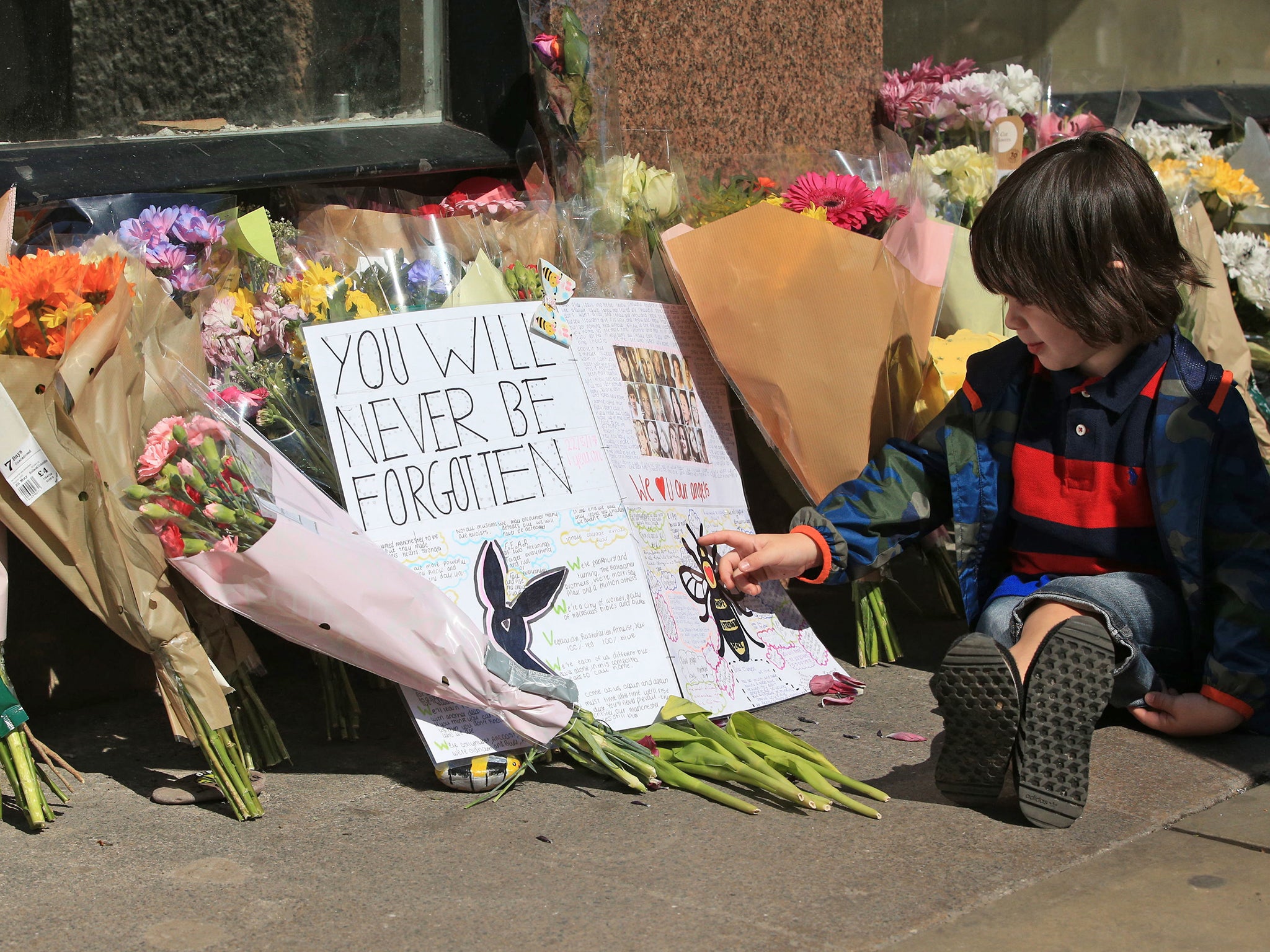Muslims 'genuinely fear' being persecuted by Prevent due to lack of official information, report warns
Manchester commission calls for increased transparency to combat 'extremism on the rise in all communities and walks of life'

Your support helps us to tell the story
This election is still a dead heat, according to most polls. In a fight with such wafer-thin margins, we need reporters on the ground talking to the people Trump and Harris are courting. Your support allows us to keep sending journalists to the story.
The Independent is trusted by 27 million Americans from across the entire political spectrum every month. Unlike many other quality news outlets, we choose not to lock you out of our reporting and analysis with paywalls. But quality journalism must still be paid for.
Help us keep bring these critical stories to light. Your support makes all the difference.
Muslims “genuinely fear” being persecuted by the government’s controversial counterextremism strategy because of the lack of official information, a report has warned.
Research commissioned in Manchester following last year’s bombing found that although Prevent does good work tackling all forms of radicalisation, poor communication has caused a “dangerous perpetuating cycle of fear” and made people less willing to engage with the voluntary scheme.
A commission set up to investigate extremism and social cohesion said that Prevent’s work was “vital to community safety and vulnerable people are being safeguarded from being radicalised”.
But accurate information, statistics and positive news of interventions was are not reaching communities feeling “high levels of distrust and suspicion” towards authorities, it said.
“The lack of information is exploited by those with an anti-Prevent or anti-Islam agenda who maliciously miscommunicated the aims of Prevent or true nature of the issue,” the report concluded.
“This has perpetuated the problem, leading to the creation of suspect communities and fear of persecution amongst Muslim communities.”
The eight person commission, which was chaired by Bury council leader Rishi Shori, warned that amid the threat of further Isis-inspired terror attacks and growing Islamophobia, there is a risk of Islamists and the far-right feeding off each other in a spiral of violence.
Andy Burnham, the mayor of Greater Manchester, said the “nature of terrorism has changed and cities need to face up to the consequences of that”.
“It is no longer the case that acts of terror are likely to be perpetrated by known terror organisations,” the former Labour MP warned.
“Now, it can be individuals or small, localised groups who plan and carry out these atrocities…if it was ever the case that the police and security services might be able to monitor every person who poses a risk to us, then it is certainly not possible now.
“We are living in turbulent times, with extremism on the rise in all communities and walks of life. The growth of social media seems to be fuelling a polarisation in society and creates the conditions for individuals to be influenced and radicalised in their own homes and local areas.”
The commission called for the Home Office to make detailed statistics on Prevent’s work available for Manchester and other cities to help dispel myths and challenge scaremongering.
A government pilot aiming to improve information sharing on suspected extremists who are considered a security threat but cannot be prosecuted is also underway, after a report found that intelligence on the Manchester Arena bomber had not been properly handled.
An inquiry by David Anderson QC found that MI5 may have been able to prevent the atrocity, which left 22 victims dead in May 2017, but two pieces of information were wrongly deemed to be of a criminal rather than terrorist nature.
“It is unknown if the arena attack could have been prevented had this information been shared with Greater Manchester Police, but it is hoped that, should this work be introduced, it may prevent future acts of terrorism,” the commission said.
Channel, the deradicalisation programme for people referred by Prevent, is currently run by police but the North West is among areas piloting bringing the efforts under local authority control.
The Greater Manchester Combined Authority is also to set up an “informal” phone line where people can anonymously request advice on potential extremism or exploitation, and report concerns.
“It is families, friends and neighbours who are most likely to be the first to witness changes towards more extreme behaviour that might lead to violence,” Mr Burnham said.
“This is not about encouraging people to spy on each other but creating a greater understanding of the signs that indicate where behaviour has crossed the line and then making it easier to report.”
Mr Burnham said that the report’s recommendations “will not necessarily stop further terror attacks”, but argued a whole-society approach to vigilance and cohesion can help.
The commission found that there was no one single driver of radicalisation, but that people’s vulnerability can be affected by poverty, unemployment, racial inequality and a lack of social cohesion.
It said cuts to youths services could worsen the potential for teenagers to be drawn into terrorist activity, while reductions in public services have left “little opportunity” for people from different backgrounds to meet and exacerbated fear and suspicion.
Experts warned that people with legitimate concerns felt “ignored and silenced”, calling for authorities to create spaces where people can have difficult conversations without being branded a racist or terrorist.

The report, which used face-to-face meetings with hundreds of people, community organisations and academic research, said the “top down” imposition of a common identity – like the government’s “British values” drive – did not work.
Instead of a floated Greater Manchester charter on cohesion, it recommended authorities continue to use the organic #WeStandTogether movement to bring local people together.
The report follows repeated warnings over the perception of Prevent, and effects of poor cohesion across Britain, including those by the Independent Reviewer of Terrorism Legislation and Dame Louise Casey.
The number of terror arrests in Britain is at a record level, as is the number of referrals to Prevent following the introduction of a “statutory duty” on teachers and other public workers.
Of the total 6,093 people referred in the year to March 2017 – including 1,600 children under the age of 15 – 61 per cent (3,704) had raised concern about Islamist extremism, and 16 per cent (943) over far-right extremism.
Sara Khan, the new lead commissioner for countering extremism, called the report an “important contribution to the debate on challenging extremism” as she continues separate nationwide research.
“The need for a whole society response is one I support, as well as a zero tolerance approach to those actively promoting extremism, better support for those challenging extremism and crucially the necessity of having the difficult and often uncomfortable conversations,“ she added.
“Our starting point is improving society’s understanding of extremism in all its forms.”
Ben Wallace, the security minister, said: “The the biggest challenge to the policy are the inaccuracies in reporting and perception. It is for that reason that ever since I have been the security minister I have ordered the publishing of Prevent data, worked with a broad range of stakeholders and broadened out the strategy to involve local government more.
“We now have champions in education, health, and local government who ensure that people understand that at its heart Prevent is about safeguarding people from being exploited and who are able to assure communities that it is not a discriminatory programme.”
Subscribe to Independent Premium to bookmark this article
Want to bookmark your favourite articles and stories to read or reference later? Start your Independent Premium subscription today.
Join our commenting forum
Join thought-provoking conversations, follow other Independent readers and see their replies
Comments